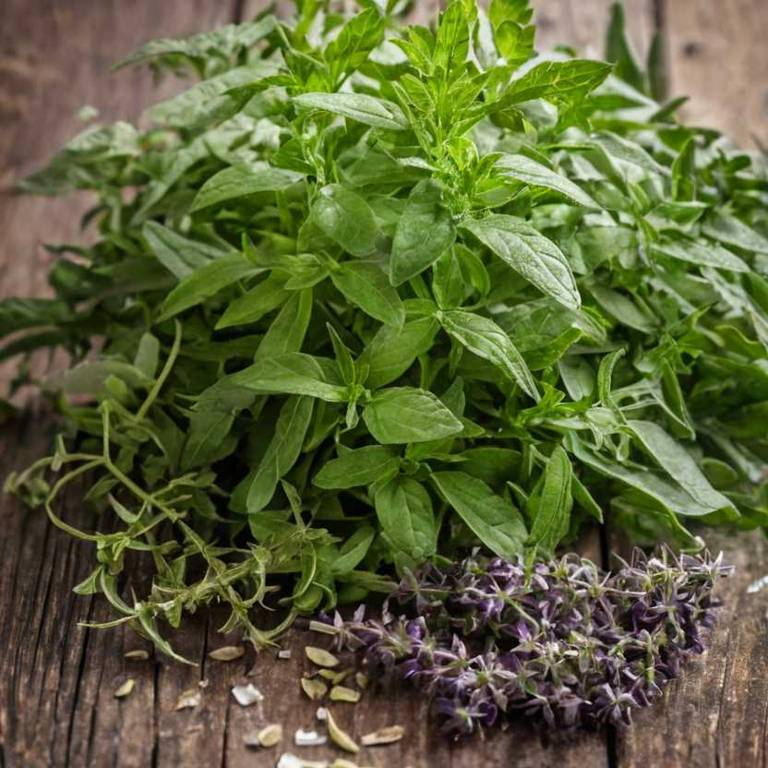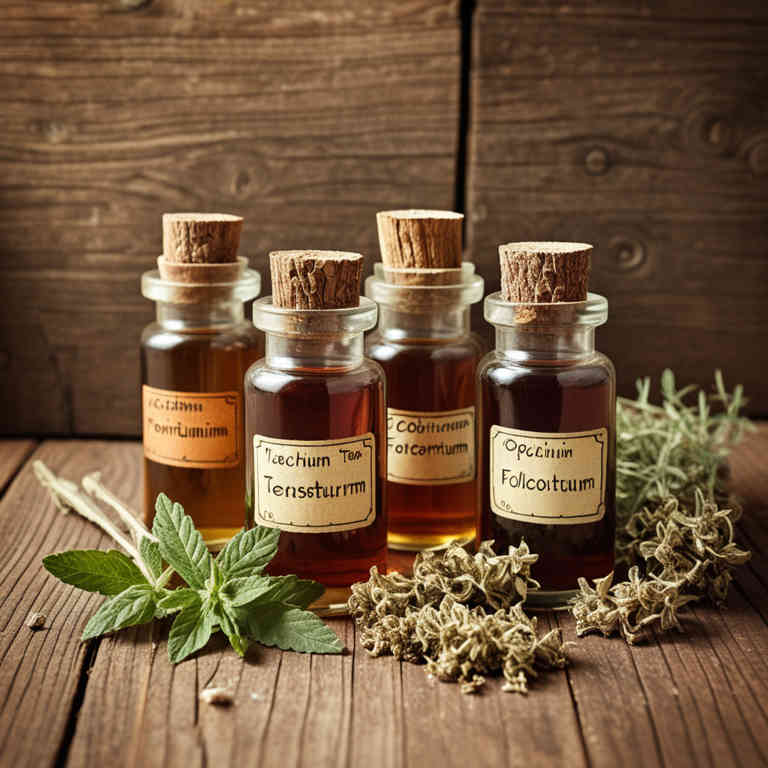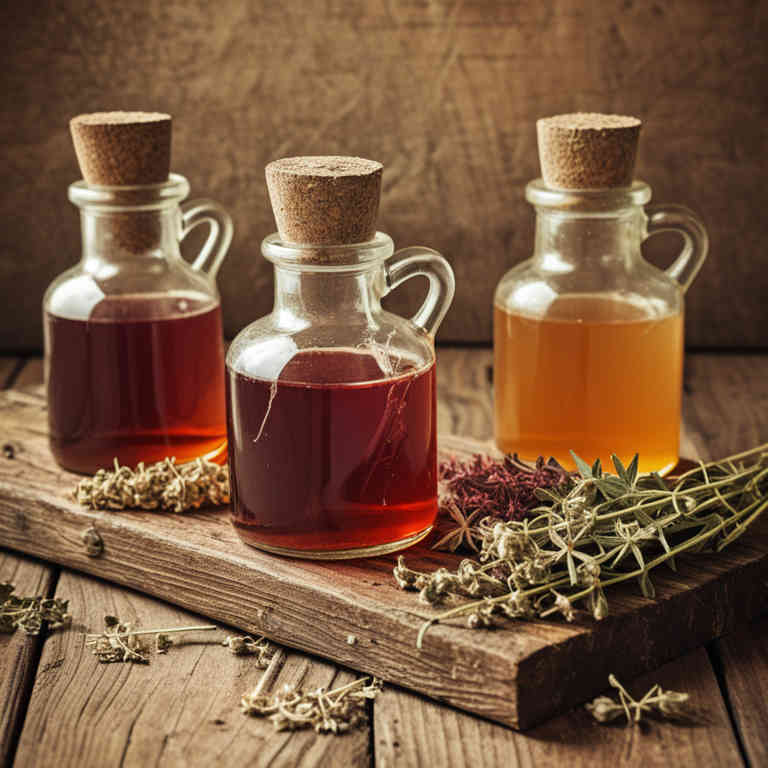10 Best Ocimum Tenuiflorum Preparations

The best medicinal preparations of Ocimum tenuiflorum are teas, decoctions, tinctures, oils, and creams, each offering unique benefits for various health conditions.
Teas made from fresh or dried leaves are commonly used to support digestion and reduce stress.
Decoctions involve simmering the leaves to extract more potent compounds, often used for respiratory or inflammatory issues.
Tinctures provide a concentrated form of the herb, ideal for internal use, while essential oils derived from the leaves are used in aromatherapy and topical applications.
Creams infused with Ocimum tenuiflorum are popular for their soothing effects on skin irritations and wounds.
Below there's a list of the 10 best herbal preparations of ocimum tenuiflorum for medicinal purposes.
- 1. Teas
- 2. Decoctions
- 3. Tinctures
- 4. Oils
- 5. Creams
- 6. Syrups
- 7. Capsules
- 8. Lozenges
- 9. Oinments
- 10. Poultices
1. Teas
Ocimum tenuiflorum teas is commonly used to support digestive health, reduce inflammation, and promote mental clarity.
This herbal preparation is widely utilized for treating ailments such as indigestion, ulcers, anxiety, and respiratory infections. The bioactive constituents responsible for its medicinal properties include eugenol, rosmarinic acid, flavonoids, and essential oils. These compounds possess antioxidant, anti-inflammatory, and antimicrobial properties.
Additionally, Ocimum tenuiflorum teas may help in managing blood sugar levels and enhancing cognitive function.

2. Decoctions
Ocimum tenuiflorum decoctions is commonly used to treat a variety of ailments including digestive disorders, inflammation, and respiratory conditions.
This herbal preparation is widely utilized in traditional medicine for its therapeutic properties. The most common medicinal uses include alleviating symptoms of colds, flu, and asthma, as well as aiding in digestion and reducing fever. The bioactive constituents responsible for its medicinal properties include flavonoids, phenolic acids, eugenol, and rosmarinic acid, which possess antioxidant, anti-inflammatory, and antimicrobial effects.
These compounds contribute to the plant's ability to support immune function and promote overall wellness.

3. Tinctures
Ocimum tenuiflorum tinctures is commonly used to treat a variety of health conditions due to its potent medicinal properties.
These tinctures are widely utilized for their anti-inflammatory, antimicrobial, and antioxidant effects, making them effective in addressing ailments such as respiratory infections, digestive issues, and skin conditions. The most common medicinal uses include alleviating symptoms of colds, sore throats, and gastritis, as well as supporting wound healing and reducing inflammation. The bioactive constituents responsible for these effects include essential oils like eugenol and rosmarinic acid, along with flavonoids and phenolic compounds that contribute to its therapeutic value.
These compounds work synergistically to enhance immune function and provide natural relief for various health concerns.

4. Oils
Ocimum tenuiflorum oils is commonly used to treat various ailments such as digestive issues, respiratory infections, and skin conditions.
The oil is widely utilized in traditional medicine for its anti-inflammatory, antimicrobial, and antioxidant properties. It is often applied topically for conditions like acne, eczema, and muscle pain, and can also be ingested in small amounts to aid digestion and relieve nausea. The bioactive constituents responsible for these effects include eugenol, rosmarinic acid, and linalool, which contribute to its therapeutic benefits.
Additionally, the oil is known to support immune function and may help in reducing stress and anxiety.

5. Creams
Ocimum tenuiflorum creams is commonly used to treat various inflammatory and skin-related conditions due to its potent anti-inflammatory, antimicrobial, and antioxidant properties.
These creams are widely applied for alleviating symptoms of skin disorders such as eczema, psoriasis, and acne, as well as for reducing pain and swelling associated with arthritis and other inflammatory conditions. The therapeutic effects of Ocimum tenuiflorum are attributed to its bioactive constituents, including eugenol, rosmarinic acid, flavonoids, and essential oils, which exhibit antimicrobial, anti-inflammatory, and immunomodulatory activities. Additionally, these creams are often used to promote wound healing and reduce oxidative stress in the body.
The combination of these bioactive compounds makes Ocimum tenuiflorum a valuable natural remedy in traditional and complementary medicine.

6. Syrups
Ocimum tenuiflorum syrups is commonly used to treat respiratory conditions, digestive issues, and inflammation due to its therapeutic properties.
The most common medicinal uses include alleviating symptoms of coughs, colds, sore throats, and gastrointestinal disorders such as indigestion and ulcers. It is also used to reduce fever and promote wound healing. The bioactive constituents responsible for these effects include eugenol, rosmarinic acid, flavonoids, and essential oils, which possess antimicrobial, anti-inflammatory, and antioxidant properties.
These compounds work synergistically to provide the plant's wide range of health benefits.

7. Capsules
Ocimum tenuiflorum capsules is commonly used to support immune function, reduce inflammation, and promote digestive health.
This herbal preparation is widely used to treat ailments such as colds, respiratory infections, digestive disorders, and skin conditions. The bioactive constituents responsible for its medicinal properties include antioxidants like rosmarinic acid, flavonoids, eugenol, and essential oils. These compounds exhibit anti-inflammatory, antimicrobial, and antiviral activities.
Additionally, Ocimum tenuiflorum capsules may help manage stress and improve cognitive function due to their adaptogenic properties.

8. Lozenges
Ocimum tenuiflorum lozenges is commonly used to alleviate respiratory and throat conditions such as sore throat, cough, and inflammation.
These lozenges are often employed to treat ailments like colds, flu, and bronchitis due to their antimicrobial and anti-inflammatory properties. The bioactive constituents responsible for these effects include eugenol, rosmarinic acid, flavonoids, and essential oils, which possess antioxidant, antiseptic, and immunomodulatory activities. Additionally, they may help reduce mucus production and soothe irritated tissues in the respiratory tract.
This herbal preparation is valued for its natural approach to supporting immune health and relieving common upper respiratory symptoms.

9. Oinments
Ocimum tenuiflorum oinments is commonly used to treat skin infections, inflammation, and wounds due to its antimicrobial and anti-inflammatory properties.
This herbal preparation is widely utilized for conditions such as eczema, psoriasis, and fungal infections. It is also applied to alleviate symptoms of arthritis and reduce pain associated with inflammatory disorders. The bioactive constituents responsible for these effects include eugenol, rosmarinic acid, and various flavonoids, which exhibit antioxidant, anti-inflammatory, and antimicrobial activities.
These compounds work synergistically to enhance the therapeutic benefits of the ointment.

10. Poultices
Ocimum tenuiflorum poultices is commonly used to treat inflammatory conditions, skin infections, and wounds due to its antimicrobial and anti-inflammatory properties.
These poultices are often applied topically to reduce swelling, pain, and promote healing in conditions such as arthritis, eczema, and burns. The most common medicinal uses include alleviating symptoms of respiratory infections, digestive disorders, and menstrual pain. The bioactive constituents responsible for these effects include eugenol, rosmarinic acid, flavonoids, and essential oils, which exhibit antioxidant, anti-inflammatory, and antimicrobial activities.
These compounds work synergistically to enhance the therapeutic potential of the herbal preparation.
